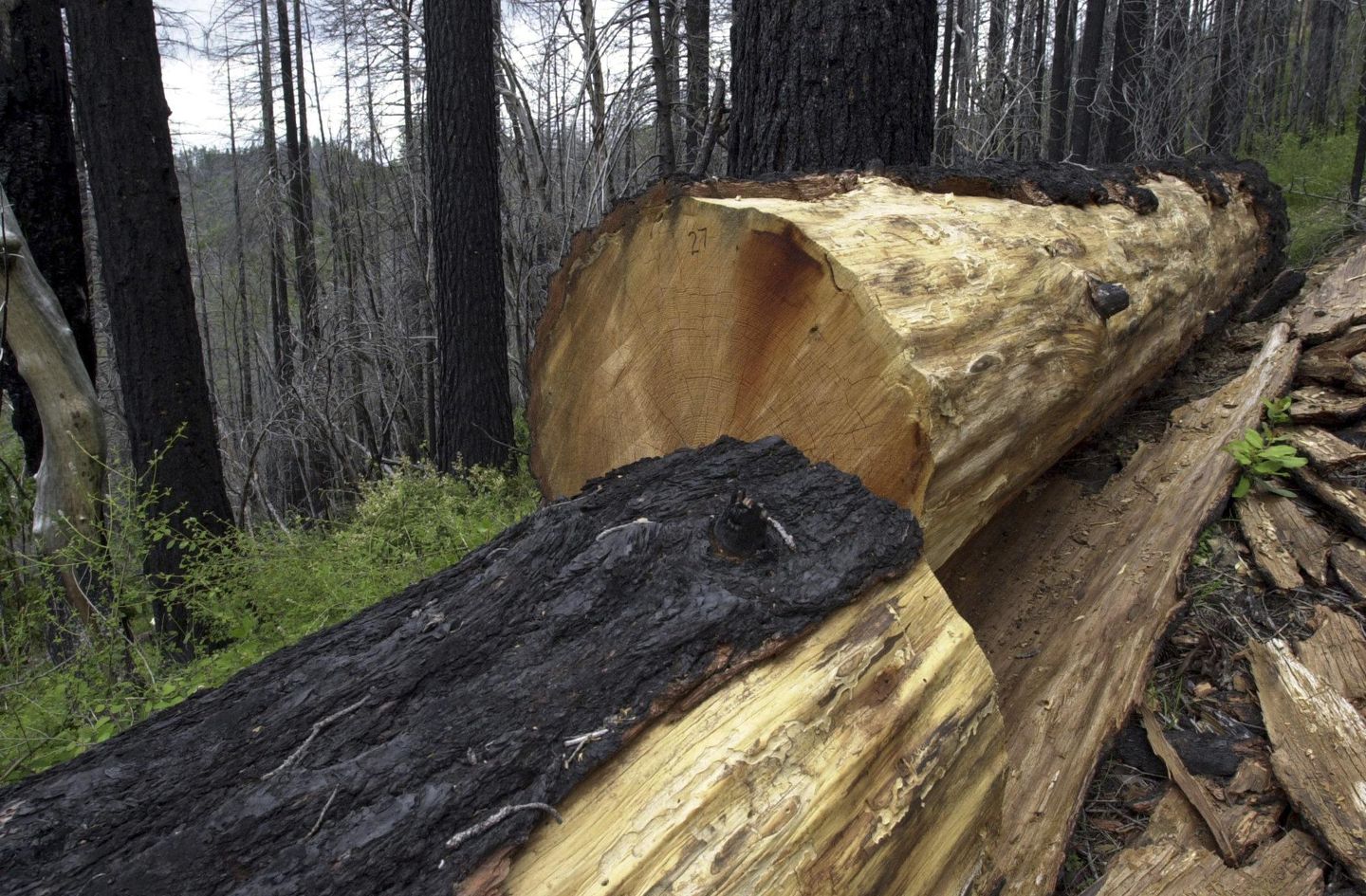
Agriculture Secretary Brooke Rollins has announced plans to rescind the hotly disputed Clinton-era roadless rule, saying its chokehold on road-building and timber-harvesting on national forest lands has fueled wildfires, hampered firefighting efforts, and hobbled economic growth.
“Once again, President Trump is removing absurd obstacles to common sense management of our natural resources by rescinding the overly restrictive roadless rule,” Ms. Rollins said in a statement. “This move opens a new era of consistency and sustainability for our nation’s forests. It is abundantly clear that properly managing our forests preserves them from devastating fires and allows future generations of Americans to enjoy and reap the benefits of this great land.”
She said about 28 million acres of the 58.5 million acres of inventoried roadless areas in the National Forest System are at “high or very high risk of wildfire,” fanned by increasingly dense, insect-infested woodlands.
A U.S. Department of Agriculture spokesperson said Tuesday in an email that Ms. Rollins’ unveiling represents “the first step in the process to rescind the 2001 Roadless Rule. The Department will issue formal notice on the rescission in the coming weeks.”
Ms. Rollins’ announcement on Monday at the annual meeting of the Western Governors’ Association resurrected the quarter-century battle over the rule, which was adopted in 2001 by the National Forest Service under pressure by environmentalists to protect old-growth forests in the Pacific Northwest.
The rule helped cripple the timber industry in Washington, Oregon and Northern California, a region heavily dependent on federal forests, where production has declined and sawmills closed as countries led by Canada fill the lumber vacuum.
Western Republicans, who have long sought to ax the roadless rule, cheered the administration’s decision.
“This is a great day for the United States of America,” said Rep. Harriet Hagerman, Wyoming Republican. “I want to thank President Trump and Secretary Rollins for their leadership in recognizing the need for and importance of actually managing our National Forest Service lands.”
House National Resources Committee Chairman Bruce Westerman called the announcement “a massive win for restoring the health and resiliency of our federal forests, preventing catastrophic wildfire and restoring access for the public and wildland firefighters.
“It acknowledges that we cannot lock up our forests and throw away the key,” the Arkansas Republican said. “We need to actively manage and conserve our forests for cleaner air and water, better wildlife habitat and safer communities. I thank Secretary Rollins and the Trump administration for repealing burdensome, overreaching federal regulations like this one.”
Thank you @SecRollins for rescinding the 2001 Roadless Rule. For years, this overreaching regulation made it harder to treat our national forests and prevent catastrophic wildfires. Eliminating this misguided rule paves the way for the @ForestService to responsibly and… https://t.co/FbxoJ5IWlq
— Sen. John Barrasso (@SenJohnBarrasso) June 23, 2025
The roadless rule won’t be paved over without a fight.
Environmental groups decried the Trump administration’s move, arguing that the roadless regulations have protected forested regions described as “the Earth’s lungs.”
“An attack on the Roadless Rule is an attack on clean water, wildlife, Western communities, and recreation on public lands,” said Rachael Hamby, policy director for the Center for Western Priorities. “For over two decades, the Roadless Rule has protected intact ecosystems from irresponsible timber companies who want to clear cut the mature and old-growth forests that provide clean drinking water and recreation opportunities to Westerners.”
The Sierra Club accused the Trump administration of putting the “national forests on the chopping block.”
“Once again, the Trump administration is ignoring the voices of millions of Americans to pursue a corporate giveaway for his billionaire buddies,” said Alex Craven, Sierra Club forest campaign manager. “Stripping our national forests of roadless rule protections will put close to 60 million acres of wildlands across the country on the chopping block.”
The land area burned annually by U.S. wildfires has increased over the last 20 years, according to data from the National Interagency Fire Center, but environmentalists argue that timber-harvesting actually fuels wildfire risk by intensifying climate change.
“It’s ridiculous for Secretary Rollins to spin this as a move that will reduce wildfire risk or improve recreation,” said Ms. Hamby. “Commercial logging exacerbates climate change, increasing the intensity of wildfires. This is nothing more than a massive giveaway to timber companies at the expense of every American and the forests that belong to all of us.”
Skeptics have rolled their eyes at the global-warming theory, countering that proposed solutions like driving electric cars will do nothing to reduce the danger from choked and diseased forests.
The USDA said that 30% of National Forest System lands fall under the roadless rule, including nearly 60% of forest lands in Utah; 58% in Montana, and 92% in Alaska’s Tongass National Forest, the nation’s largest at 17 million acres.
“This also hurts jobs and economic development across rural America,” said the department. “Utah alone estimates the roadless rule alone creates a 25% decrease in economic development in the forestry sector.”
The roadless rule has survived despite years of litigation and efforts to limit its scope, including by Mr. Trump.
In 2020, the Trump administration removed the roadless rule from applying to the Tongass National Forest, but the regulation was reinstated in 2023 under President Biden.
The department said rolling back the roadless rule aligns with Mr. Trump’s Jan. 31 executive order, Unleashing Prosperity Through Deregulation.












